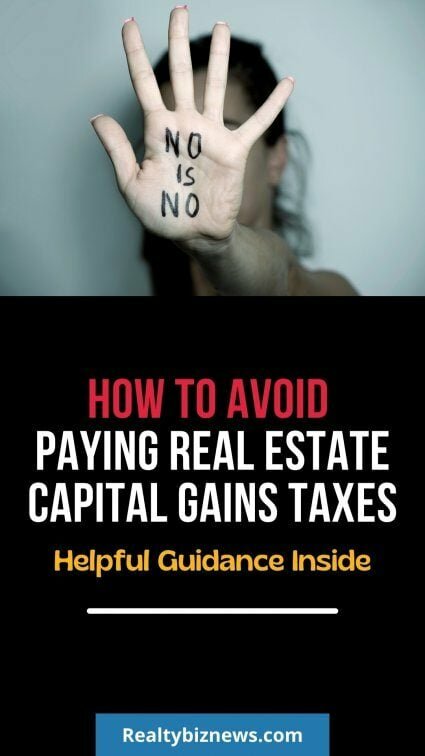If you have decided to sell a house or are in the process of selling it, you need to keep in mind that usually, there are taxes on real estate capital gains. Generally speaking, the higher the price you sell at, the bigger your tax bill from Uncle Sam.
Sometimes when you sell your home after a short period of ownership, getting a great price does not mean much when paying capital gains taxes. So much so that you might reach a point where receiving a good price for your property might not even put a big smile on your face.
However, there is some good news. There are some ways to avoid these taxes. Let's take a look at everything you need to know about capital gains tax when selling a house. By understanding the capital gains tax laws, you can potentially avoid these taxes and proceed in a relaxed manner with your sale.

The IRS always requests for a piece of any transaction and money you bring into your accounts. The profits acquired from real estate are taxable by law. This is how they actually calculate the amounts:
Let’s look at a few examples. If you purchased a home some years ago for $100,000, and now you sold it for $450,000 while being single, your capital gain is $350,000. From this amount, $250,000 is not taxable. The remaining $100,000 in profit, however, would be taxable.
If you are married and bought a home for $500,000 and later sell the home for $800,000, there would be no capital gains paid due to only having a $300,000 profit. The $500,000 exclusion covers you from paying any taxes.
This exemption is not applicable for you if you are already a subject of expatriate tax.
When paying capital gains, you need to establish whether it is a short-term or long-term capital gain to figure out what you owe.
Fortunately, many of you out there have a solid basis for applying for 0% tax on real estate capital gain.
Live in the house for a minimum of two years before putting it out on the market. However, here there is a trick. As you previously saw, it says two years during the previous five years before selling. This implies that you don’t have to live two consecutive years in this space. Just be careful to gather at least two years over the last five. Be sure you can prove you're living in this property.
Check all possibilities of exemption. The calculations are more complex than meets the eye. Even if the exclusions presented above do not apply to you, don’t give up. So you should always check your situation in detail since you might qualify for other types of exemptions.
For that, just thoroughly read the IRS Publication 523 to see if you qualify for either work, health, or unforeseeable event exemptions.
Always keep any bills and receipts for every improvement and refurbishment you did to your house. We have already mentioned the basic home price, which is the price of your purchase. However, you can also add all costs for improvements and changes you made on the property.
Thus this is another good means to increase the basic amount, so the capital gain remaining through difference from the final selling price will decrease. Anything can be taken into account here: changing windows, doors, installations, etc., fences, landscaping, air conditioning, etc.
You can also deduct other expenses such as real estate commissions or any seller concessions given to the buyer. Here is a list of other deductions you could possibly claim when selling.
When it comes to capital gains taxes or any tax for that matter, everyone's circumstances differ. It is always wise to speak to a qualified tax professional for advice. Hopefully, you have found the information provided on capital gains taxes to be useful.